#ulster protestant
Text
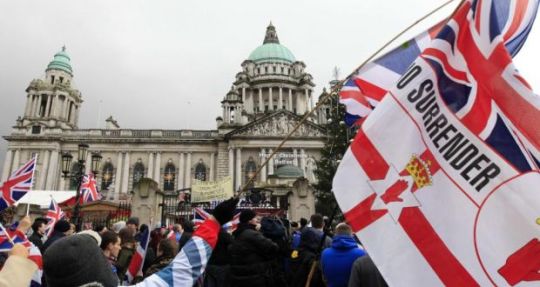
Sinn Fein's victory puts the future of Northern Ireland into question.
#Belfast#Northern Ireland#Sinn Fein#Michelle O'Neill#Ulster#Irish unification#City Hall#protesters#Union flags#politics#Stormont assembly#Eire#Save the Union#United Kingdom
14 notes
·
View notes
Text
#OTD in 1916 – Battle of the Somme Ends.
This dreadful battle claimed more Irish lives in combat than any other battle in history. On the first day of battle, 1 July 1916, the 36th Ulster Division suffered an estimated 5,500 casualties almost all of whom were drawn from the north of Ireland. Nearly 2,000 Irish soldiers were killed in the first few hours of fighting following a morning mist that poet Siegfried Sassoon referenced as “of…
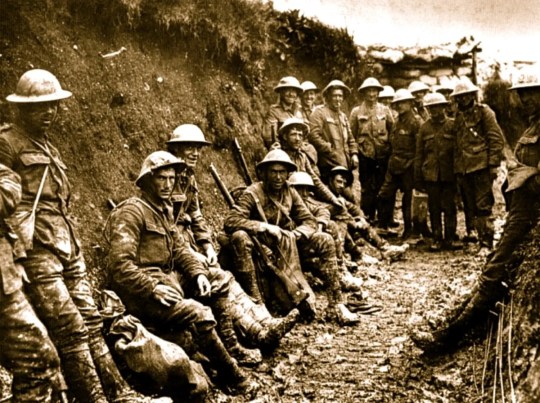
View On WordPress
#25th Brigade#36th Ulster Division#8th Division#Battle of the Somme#British Army#Dubliners#England#George William Russell#Ireland#Protestant Ulster#Royal Irish Rifles#Tom Kettle
16 notes
·
View notes
Text
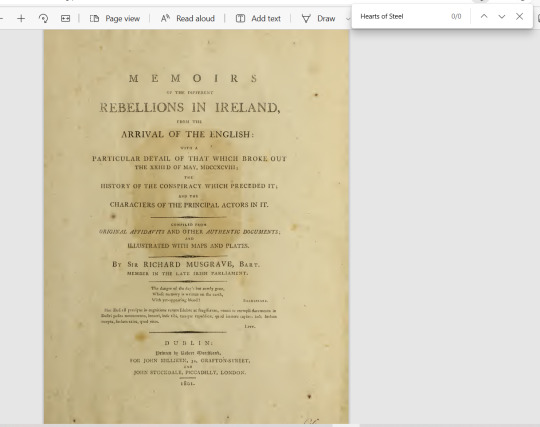
Love Sir Richard's complete silence on the Hearts of Steel despite their definite importance in the period he's writing about. oh no did something challenge your fucked up worldview just a wee bit too much and now you can't even mention it even once in passing
#hearts of steel = urban almost proto-marxist revolutionaries in ulster in the 1770s who were exclusively protestant#they're actually really interesting as a movement but sir richard did NOT like that last bit i gather#musgraveposting#jory.txt
1 note
·
View note
Text
youtube
I am a member of Toastmasters and had to do a speech, and I'm on the Engaging Humor Pathway and this speech focused on 'Know Your Sense of Humor'. I titled my speech "Humor in a Cup of Tea" about humor and jokes in Ireland and my family visits there when I was kid. It was also about St. Patrick and my thoughts on the holiday. What made it work was that I was able to do the entire six speech in an Irish Accent, specifically a Northern Irish accent. This redo of the speech here isn't as good, but doing in front of people live actually turned out better than I expected. People laughed, Wow. I can be funny. ;) #Toastmasters #Toastmasters4Writers #Speech #Humor #Irish #StPatricksDay #StPatrick #SaintPatrick #Ireland #NorthernIreland #TheTroubles #IrishAccent #NorthernIrishAccent #Acting #VoiceActing #VoiceActor #VoiceOver #VoiceOverArtist #Ulster #UlsterFry #Tea #Shamrock #greenbeer #green
#Toastmasters#Toastmasters4Writers#Speech#Toastmasters Speech#Irish#Irish Humor#Humor#StPatricksDay#St Patricks Day#Saint Patrick#StPatrick#Ireland#Northern Ireland#The Troubles#Irish Accent#Northern Irish Accent#Acting#Voice Acting#Voice Actor#Voice Over#Voice Over Artist#VO Life#Ulster#Ulster Fry#Tea#Shamrock#Green Beer#Green#Catholic#Protestant
0 notes
Text
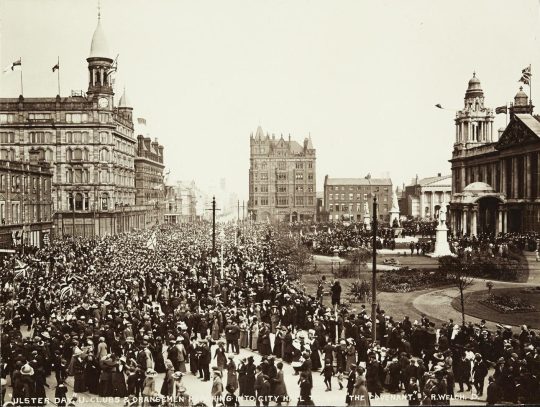
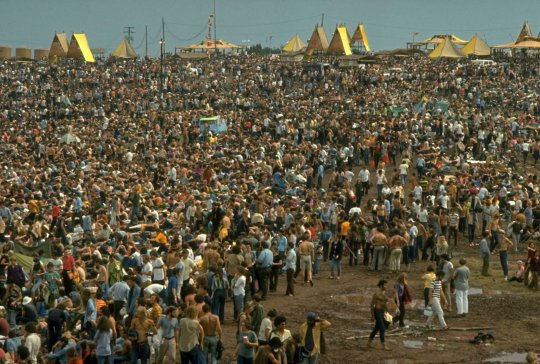

Above are three plausible candidates for the largest peacetime gathering of human beings in one place, at one time, from top to bottom, the Ulster Covenant of 1912, Woodstock 1969, and the Dutroux protest of Belgium (1996).
#history#historical#Ulster Covenant#Northern Ireland#United Kingdom#Ireland#black and white#1910s#Woodstock#hippie#counterculture#60s#Affaire Dutroux#Belgium#90s#protest#photography#architecture
0 notes
Text
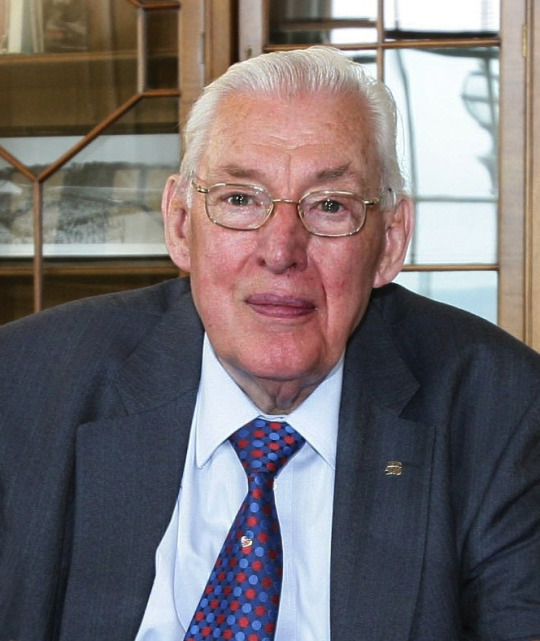
“I have never made an inflammatory statement in my life”
Ian Richard Kyle Paisley was a Northern Irish loyalist politician and Protestant religious leader.
Born: 6 April 1926, Armagh, Northern Ireland
Died: 12 September 2014, Belfast, Northern Ireland.
#today on tumblr#quoteoftheday#quotes#europe#freedom#history#truth#deep thoughts#philosophy#quotations#northern ireland#british#loyalist#preacher#prod#true prod#protestant#faith in christ#for god and ulster#jesus#church#Ulster#the troubles#political#uk politics
0 notes
Text
My story is one of crawling on my bullet-riddled stomach around a blood-soaked field through the mutilated bodies of my friends and the scattered, burning, body-parts of their murderers. Demonic social media agitators are trying to make my experience your reality too. Shun them.
My story is one of crawling on my bullet-riddled stomach around a blood-soaked field through the mutilated bodies of my friends and the scattered, burning, body-parts of their murderers. Demonic social media agitators are trying to make my experience your reality too. Shun them. pic.twitter.com/VzVDhcrVfO— Stephen Travers (@MiamiShowband) October 31, 2022
Stephen Travers
View On WordPress
#British State agents#Collusion#Miami Show Band Massacre#Protestant paramilitary murderers#Stephen Travers#Troubles#Ulster Defence Regiment (UDR)
0 notes
Note
What's your favorite medieval stories with suspiciously queer themes?
ALL medieval stories or just medieval irish ones? because if we go for all medieval stories i think we will be here all night lol
but for irish ones... well, i'm basic, i'm an ulster cycle bitch, no matter how many times i've read táin bó cúailnge and specifically the 'comrac fir diad' episode, i never get over it (and i have read it dozens and dozens of times at this point)
i think the thing about CFD is that, yes, it's very homoerotic, but it's sort of more than that: it's about the conflict between a bond of love that you (mostly) chose, and the bonds of obligation and family loyalty that you were born into. and it's about the way that those youthful relationships get obliterated by adult responsibilities and obligations. for me there's something deeply tragic and deeply queer about that tension and the way it juxtaposes different types of relationship? idk i'm explaining this really, really badly right now but it's a story that says "would you turn your back on your family and your people for a man you loved" and the answer is "no"! love does not win! sometimes the other bonds in your life not only tear you away from someone you care about but make you do the tearing!
and yet cú chulainn's lament for fer diad really articulates the fact that there was love there. it wasn't nothing and it wasn't easily abandoned. and it sort of functions almost as a protest against the narrative, and an act of defiance against the people who set up that situation, and an ultimate expression of feeling that comes too late to be heard by its subject. which is a lot. and i think it is a big turning point for cú chulainn himself in terms of understanding violence as violence, as damage that can't be undone, as something that has a cost
and i think all of that has more weight if you read into the homoerotics of it but i think the weight of it is still there even if you don't. it's about love vs duty and duty wins – and that absolutely sucks for everyone. it's powerful.
i also love just like, everything cú chulainn and láeg have got going on, frankly. i think you see it the most clearly in texts like oidheadh con culainn and tóruigheacht gruaidhe griansholus because late texts actually let their characters express emotions out loud, but there's so much there even in earlier texts if you're willing to read between the lines. and plenty of it in táin bó cúailnge, even
so really the general message here is that we should all read the táin and have feelings about it
56 notes
·
View notes
Text
“I have been reunited with an old friend from the Ulster Rifles. He’s a Protestant, Paddy Mayne, though he drinks like a Catholic. We’re able to talk about home to each other. He’s the same man I knew in Ireland, but lately I am changed by him.”
“There’s a fellow here I knew in Ulster, Eoin McGonigal. He’s from the other side, but we don’t talk religion. If I sit up barking and howling at night as I sometimes do, he takes me for a walk and throws a stick for me. When I find myself become a devil, he reminds me that underneath I am a poet.”
SAS: Rogue Heroes Season 1 Episode 3
#sas: rogue heroes#sas rogue heroes#paddy mayne#eoin mcgonigal#paddy x eoin#my stuff#I need this moment close at hand for... reasons#sasrhedit
131 notes
·
View notes
Note
Any favourite Irish headcanons for Seamus? 😊
thank you very much for the ask, anon!
and i'm sorry to say that i'm going to be really dull and - before we get into the more insincere headcanons i have for seamus - say that figuring out his role in the series depends on the answer to a really important question which neither the books nor [to my knowledge] jkr's post-series writing addresses:
is wizarding ireland a colony?
as someone who is fond of seeing the series through the lens of anglo-irish history, this preoccupies me a lot - and i think it's something very interesting to unravel...
the statute of secrecy - the law which brings about the separation of the magical and muggle worlds - was first instituted in 1689 and put fully into effect in 1692.
it's reasonably clear from the tone of the extra canonical material that these dates come from [and also from the fact that - i am told - the statute of secrecy is a fairly significant sub-theme of the fantastic beasts films] that jkr landed on these dates for the statute primarily by thinking about the history of witchcraft in early-modern america [the salem witch trials, for example, take place in 1692-1693].
[witch trials were not an exclusively american phenomenon, of course, but they had begun to fade out in early-modern europe by c.1650, which is roughly when they begin to become more widely-documented in the american colonies. it's also fair to say that the pop-culture image of witch trials, even in europe, is heavily influenced by their american manifestation - we've all seen the crucible!]
but selecting this american context to situate the statute within means that - apparently by accident - it's also a document which appears into the lives of british and irish wizards during an extremely bloody time in anglo-irish history...
a detour which has nothing to do with harry potter...
the sixteenth and seventeenth centuries were the main period of british colonial expansion in ireland - the early seventeenth century is, for example, the period of the plantation [that is, the settler colonisation] of ulster [what is now roughly northern ireland].
like many periods of anglo-irish relations, there was a major sectarian aspect to the british treatment of the irish. the plantation was driven by protestant settlers from scotland [which is not and has never been a colony!] and england into northern ireland. the protestant population expanded rapidly in the seventeenth century, political authority in the subordinate irish parliament was largely in the hands of protestant elites [especially clerics connected to the church of ireland] who enacted the policies of the british parliament and the crown, the catholic population was subject to land confiscations, restriction of worship, and an expectation of anglicisation.
and in march of 1689 - the year the statute of secrecy was first signed - this all... rather kicked off.
in november 1688 - in an event known as the glorious revolution - the king of britain [and ireland!], james ii, was forced from the throne. among the reasons for this [many of which were to do with james' absolutist views of monarchy] was the fact that james was a roman catholic, and that the birth of his son james [iii, the old pretender] in june 1688 displaced james ii's protestant daughters mary and anne in the line of succession and would result in a catholic dynasty on the throne. which was unpopular.
so james was chased off and the throne was offered to william of orange - soon to be william iii - the husband of mary [ii].
in an attempt to regain his throne, james primarily recruited support from among the catholic population of ireland [as well as scotland and france], having promised to reverse many of the more unpopular sixteenth- and seventeenth-century policies imposed upon ireland by the crown. this was intolerable both to british and irish protestants, and william iii had no choice but to land in ireland with an army.
the start of the conflict was bloody but nebulous. the tide turned in william iii - and his protestant supporters' - favour in july 1690, with the battle of the boyne, a williamite victory. the jacobite cause was in shambles, james fled the country, and his supporters were eventually made to formally surrender with the signing of the treaty of limerick in october 1691.
from 1691 to 1800, ireland was a british colonial client state [nominally an autonomous kingdom with its own parliament, in reality controlled by the crown and responsible to the king's cabinet in london] politically dominated by anglo-irish protestant families. in 1800, this "independent" legislature was abolished and ireland was absorbed into the united kingdom of britain and ireland and governed from westminster via a colonial administration in dublin, which remained dominated by anglo-irish protestants. this remained the case until the establishment of the republic of ireland in 1922. northern ireland remains a constituent nation of the united kingdom.
and now back to the wizards...
according to the harry potter lexicon [my beloved], jkr has connected the establishment of the statute of secrecy in britain to a delegation of wizards who sought protections for the magical from [a post-battle-of-the-boyne?] william iii and mary ii in 1690. when they failed to get these, the british delegation - along with the representatives from other nations who made up the international confederation of wizards - agreed to the full imposition of the statute, with the main local result of this being the creation of the ministry of magic to govern the magical citizens of britain...
and of ireland?
because something which has always stood out to me - in a way i imagine it has for literally nobody else - is that you can suggest on the basis of canon that magical ireland was never partitioned...
“[England] Went down to Transylvania, three hundred and ninety to ten,” said Charlie gloomily. “Shocking performance. And Wales lost to Uganda, and Scotland was slaughtered by Luxembourg.”
charlie is talking about the performance of the uk's constituent nations in the quidditch world cup here. we know - obviously - that ireland are the finalists and eventual champions of the competition.
northern ireland, however, is nowhere to be seen...
it could be that the northern irish quidditch team is as abysmal at international sport as its muggle equivalents and that charlie regarded it as futile to mention it. it could be that wizarding ireland is a united ireland [slay!]. but it could also be that the minister for magic is ultimately responsible - as the monarch would have been at the time the statute was signed - for the governance of the entirety of ireland, with his rule maintained within ireland itself by a client government which he appoints.
because while i don't buy the idea of a hereditary wizengamot or think that the sacred twenty-eight has any actual power other than the opportunity to influence the minister... it's striking that the name of an anglo-irish noble family appears on it [burke - although carrow is sufficiently close to the anglo-irish "carew" for us to consider it a variant, and one also finds the odd lestrange knocking about irish history...], and that jkr has written about another of the most prominent pureblood families as having been resident in ireland during the seventeenth century... the gaunts [it's why lord voldemort like relics so much...]. we also know that the london edition of the daily prophet - which functions as something close to state propaganda - circulates in ireland, because seamus' mother takes it, and that the ministry is unhappy with the tricolour flag being flown ostentatiously by ireland supporters during the world cup...
it is, then, entirely possible - should an author wish - to imagine that the imposition of the statute at such a key point in anglo-irish history means that the magical ireland of the 1990s remains subject to the british minister, and that it therefore has a very different political and cultural relationship to britain than its muggle cousin.
and i also think that this but one way of thinking more broadly about the wider imperialist vibe which is found in the books: the defence of "civilisation" and the status quo; the fact that so much "wizarding" culture is just posh british stuff; the fact that so many of the historical analogies jkr uses to mirror wizarding history relate to the troubles; the ways in which the size and insularity of the wizarding population means that the conditions which enable revolution might not be present in magical communities, etc.
and for us to think about the ways this might make wizarding history diverge from muggle in the early-modern and modern era: is there a revolution in wizarding russia, or are there still estates staffed by squib serfs? do wizards think they're travelling to istanbul or constantinople? do wizards participate in the "new imperialism" of the late nineteenth century, imposing the same colonial borders upon magical africa and asia as muggles do? what would it be like, if you were muggleborn, entering a world which is not only so culturally and politically different, but geographically different?
which brings us to...
seamus finnegan headcanons
on the basis of name alone - which, of course, doesn't mean everything - seamus appears to be one of the only students of irish extraction [that is, not just the only student who's an irish national, but the only student who's of irish heritage] at hogwarts [orla quirke - sorted in goblet of fire - is the only other one i can think of].
[although it is worth noting that many names which appear to be scottish are also common in ireland - especially in the north. professor mcgonagall has - on the information of the seven-book canon - just as much chance of being an ulster protestant as she does a scot...]
[i have decided on the basis of this that i now think cormac mclaggen is northern irish.]
irish people from all walks of life live, study, and work in britain - and vice versa. but the fact that seamus attends a boarding school with the specific cultural vibe hogwarts has - that is, an institution which is a pastiche of elite, fee-paying british schools; which directly maintains the class-based status quo which props up the wizarding state; whose graduates dominate high-level political and institutional positions; and whose student body is strikingly well-heeled - suggests that there are less famous wizarding schools in ireland, and that him being sent to hogwarts is the result of a certain anglophilia [and the desire for him to benefit in any future ministry career, in britain or ireland, from an elite british education] on behalf of his parents...
this is not to say that i think seamus is a protestant - although i genuinely think that the muggle dad witch mam thing is meant to be a joke suggesting he comes from a mixed marriage [still reasonably scandalous here even in 2024!] - but that he comes from a reasonably posh, anglophile, unionist catholic background, as did many real anglo-irish civil servants educated at the sort of institutions - especially oxford and cambridge - hogwarts shares a cultural vibe with.
but who gives a shit about class and religion! the more important things to know about seamus:
his go-to chip shop order is - as it should be - a spice bag.
he has - in his life - drunk the odd bottle of football special.
his over-the-top loathing of "pretty-boy diggory" in goblet of fire is an absolutely iconic deflection tactic from the fact he's gay - and deamus is canon.
indeed, he loves dean so much that he has willingly cheered for the england national football team [although he threatened to obliviate anybody dean told about this]. dean, for his part, has got really into hurling.
the closest they come to divorce is when dean won't stop singing galway girl by ed sheeran at him.
one @whinlatter has convinced me of: this is their son.
his confirmation name is florian - the patron saint of protection against fire.
him getting beaten to a pulp by the carrows - and then explaining in great detail how the room of requirement works to harry - is iconic, and is a really under-appreciated aspect of character growth from his doubt over harry in order of the phoenix.
the derry girl he identifies most strongly with is james - although he tells everyone it's michelle.
he met edele lynch from b*witched once and lost his mind.
he owns a flat cap.
him publicly beefing with his mam in the immediate run-up to dumbledore's funeral is one of the most specifically irish things he ever does and i can't explain why.
him giving harry an "appreciative smirk" after he drops the iconic "there's no need to call me sir, professor" line is the second most irish thing he does. i, once again, cannot explain why. [him winking at harry after he answers snape back in their very first potions lesson also sends me.]
he is the voice behind this iconic video... and, let's be real, his slight capacity for self-aggrandisement and sulking does make him a plausible cork man.
he visits his granny every sunday for endless cups of tea and re-runs of ballykissangel.
he has never read a single piece of writing by sally rooney - but he lies and says he has.
he did this to harry on his first day in the ministry:
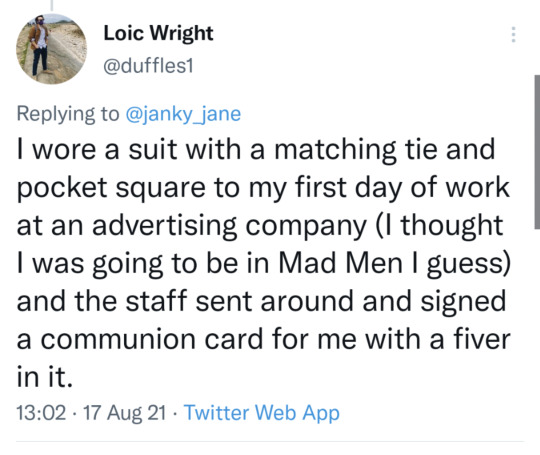
his wand is made of dogwood - which suits the flamboyant and loud.
he's shown in canon to quite like a bit of gossip - him being gassed up by quirrell's claim that he fought a zombie and then gutted when quirrell refuses to actually tell the story always sends me - and i like the idea of him being amazing value in a pub.
he's an only child - but he has at least thirty cousins. and his cousin fergus genuinely never did have another peaceful moment after seamus learned to apparate.
he and lavender went to the yule ball together because both dean and parvati are stupid and didn't see what was right in front of their faces. they split a bottle of archers behind a rose bush and complained about men and it was the best night of their lives.
he goes as red as a lobster the second the sun's out.
he runs the shit london guinness twitter account.
his boggart is a banshee because his dad - who is literally only mentioned once in philosopher's stone - dies over the summer before his second year [banshees - in irish folklore - herald the deaths of family members with their weeping]. however - unlike harry - you don't hear him fucking banging on about this all the time...
and he can't speak a word of irish, but none of the posh english lads he knows are going to risk calling him out on that...
#asks answered#asenora meta#seamus finnigan#northern ireland posting#republic of ireland posting#the fact that she didn't think *once* about the fact the ministry of magic is technically established by king billy...#joanne come on noyyyyy#dumbledore was in the apprentice boys i fear#that's why fawkes is orange#literally just checked the lexicon to see if anything significant happened on the twelfth...
52 notes
·
View notes
Note
The Irish Famine was absolutely not a genocide please read a book.
You’re talking to a former history major & current librarian…
In 1948 the United Nations Genocide Convention defines genocide as "acts committed with intent to destroy, in whole or in part, a national, ethnic, racial or religious group."
Acts that can be considered genocidal include:
1. killing members of the group
2. causing them serious bodily or mental harm
3. imposing living conditions intended to destroy the group
4. preventing births
5. forcibly transferring children out of the group.
Of course the intent part is difficult to establish, there rarely is a smoking gun of mustache-twirling men writing in official documents they want to induce mass-death just because that typically is frowned upon in polite society and these are good Christian, civilized men running the 19th century's divinely-appointed global hegemon.
But let's run through the definition shall we...
The Irish do constitute a unique ethnic and religious minority within the British Empire. By the mid-19th century they are of course a de jure part of the core British metropole (the 1801 act of union abolished the independent Irish parliament and established the United Kingdom of Great Britain and Ireland). But by dint of their ethnic and religious status they did not enjoy legal equality with Protestant British settlers, a population which starting displacing the native population en-masse with the settlement of the so-called Ulster Plantations in the early 17th century. The Irish language, culture, and religion were all actively suppressed.
So the destruction bit... the famine has long-been characterized as man-made because the policies of the British government actively exacerbated and prolonged the crisis. Even contemporary critics famously apportioned the blame accordingly: "The Almighty, indeed, sent the potato blight, but the English created the Famine" (John Mitchel, Irish nationalist, 1861). During the initial phase of the famine in 1845, the British government under Prime Minister Robert Peel did supply some aid that ultimately proved inadequate. In 1846 the newly incoming Whig government of Prime Minister John Russell ceased any aid activities due to a commitment to laissez faire economic policy, assuming the free market would solve the issue, spoiler alert it didn't. They refused to limit the exporting of food, actively supporting the economic interests of the British-aligned landowners. Between 1845-1852 approximately a million people (~11.7% of the pre-famine population) die and another 1-2 million flee. In summary you have a government that doesn't care for the mass death, impoverishment, and displacement of a native population of the wrong ethnic stock and religious allegiance... not great!
As I referred to earlier, intent is difficult to establish but given the British government's refusal to follow its own past procedures and contemporary practices, it's at the very least guilty of gross negligence and disregard for human life that specifically targeted an oppressed ethnic minority. I think its fair to characterize that as genocide. Just because the term genocide didn't exist in the 1840s/1850s doesn't mean it's not appropriate or applicable.
41 notes
·
View notes
Text
His Last Bow
Originally titled in full "His Last Bow. The War Service of Sherlock Holmes" and later "His Last Bow: An Epilogue of Sherlock Holmes", this was originally published in 1917.
It is the final story in His Last Bow, the final short story in the canon covered by Letters from Watson and agreed by all the key chronologists to be the final canon appearance of Holmes and Watson.
Sir Arthur Conan Doyle had openly supported British entry into the First World War in 1914.
The story came about after a visit to the Western Front in 1916; asked by a French general what Holmes was doing, Doyle had responded that he was too old to serve. He then decided to write this story as a means of boosting morale.
To put it mildly, the British public had gone a bit spy-crazy in the lead up to the war; fearing "Teutons serving them croutons" i.e. Germans living in the UK acting as intelligence agents for the Kaiser.
The Riddle of the Sands is one such work of popular literature on this theme, which is the subject of Letters from Carruthers coming in September.
There was also the fantastical works of William Le Queux, who started off with the French and Russians as his enemies before switching to the Germans; he also had his works serialised in the Daily Mail, a British middle-market tabloid that was founded in 1896 and has been happily engaging in right-wing sensationalism since to the point Wikipedia has banned them as a source. Le Queux for his part believed the Germans were out to get him for exposing their spy networks - he hadn't, they weren't and the Metropolitan Police refused him protection.
The Benz company had produced the first practical motor car in 1885; they of course later merged with Daimler to become Mercedez-Benz. I cannot find a 100hp example of their vehicles.
The German Chancellor in 1914, Theobald von Bethmann Hollweg, was a moderate, who reluctantly went along with many German policies like unrestricted submarine warfare and tried to initiate peace proposals on a number of occasions in the war before being ousted in 1917.
Flushing is the historical English name for the Dutch port of Vlissingen; it had a ferry connection to Sheerness until 1994.
At the outbreak of war, diplomats on both sides were allowed to return home unmolested, after locking down their embassies and burning anything sensitive they could not take with them.
Britain, France and Prussia had signed a treaty in 1839 guaranteeing the neutrality and independence of Belgium. The German invasion of the country on 3 August gave the UK justification for war and moved a Cabinet divided over the matter to firm unity.
There was a fear of Irish civil war at this point; the Liberal government, reliant on Irish and Labour support for a Commons majority after the two elections of 1910, had passed legislation creating a devolved government for the island, called Home Rule. This was vehemently opposed by Ulster Protestants and both sides were receiving weapons - from Germany in fact - in preparation for a fight as Whitehall tried to arrange a compromise. The Germans in fact believed the British would be distracted by a civil war, but in fact the Home Rule legislation was suspended for the duration and both militias decided to support the war effort. That stopped things... until the more radicial Irish Republic Brotherhood launched the Easter Rising of 1916.
"Window-breaking Furies" refers to the suffragette movement that sort votes for women, some of who engaged in direct action like breaking windows and also planting bombs or arson, although they made sure the latter was done when the buildings were empty to avoid killing anyone. These tactics were as controversial at the time as the tactics of modern-day groups like Just Stop Oil. When the war broke out, the suffragettes stopped their militant actions and supported the war effort; their imprisoned members being released as part of an amnesty.
John Bull is a national personification of the UK, typically a stout middle-aged man in a Union Jack waistcoast, frequently seen in cartoons at this time. He rather fell out of popular use post-war and is rarely seen today, unlike Britannia, who remains a widely used figure.
The Rosyth Dockyard was built from 1909 for refitting Royal Navy ships and submarines; although now privatised, it retains that role and is currently building the five Type 31 frigates.
Carlton Terrace was the home of the German Embassy until 1945; after the war, the property and its contents were sold off at auction. The Federal Republic of Germany set up at Belgrave Square in 1951 and remains there to this day.
Junkers were the land-owning aristocracy of Prussia, who exercised considerable political power up until 1945, at which point most of their holdings ended up in the USSR, Poland or what became East Germany. The land was broken up, usually ending up in collective farms; accused of war crimes, those Junkers who ended up in Soviet hands frequently ended up in NKVD camps or even executed. Their descendants did not get them back after reunification.
The King's English is another name for Received Pronunciation, the "standard" dialect and accent of British English.
Tokay or Tokaji is a sweet wine from the Tokaj regions of Hungary and Slovakia, the designation being protected under EU law in a similar way to Champagne. Imperial Tokay, which was the highest quality Tokaji Essencia, was reserved for the Austrian imperial cellars, often being passed to other European monarchs as gifts. This stuff is still drinkable after over 200 years and even the relatively new stuff isn't cheap.
A naval flotilla would be based at Harwich in both World Wars.
The reference to Holmes being sixty here is where the common estimate of 1854 being his birth year comes from.
Portland is a prison and young offenders' institution in Dorset. Notable past inmates include George Edalji (whose miscarriage of justice was exposed by Doyle), John Babbacombe Lee ("The Man They Couldn't Hang") and the controversial comedian Roy "Chubby" Brown.
Fratton is an area of Portsmouth.
In reality, the Home Section of the Secret Service Bureau, later MI5, had managed to identify the key German agents by monitoring their postal correspondence. The police then rounded them up in August 1914 and once the cross-sea cables were cut, contact with any agents in the UK became close to impossible. Little intelligence of any use came from them in any event; the Germans seem to have not even been aware of the British Expeditionary Force being sent to France, which was hardly a small event. Gustav Steinhauer, head of German naval intelligence's British section, got subjected to a rant about his agency's incompetence from the Kaiser that lasted the better part of two hours.
Twelve German spies would be executed during the war, eleven by firing squad at the Tower of London, which hosted its final execution (also of a spy) in 1941.
Skibbareen is a town in County Cork, now in Ireland.
The final speech by Holmes at the end also featured in the 1942 Basil Rathbone film Sherlock Holmes and the Voice of Terror, based on this story.
So Holmes and Watson drive off into the sunset. What happened to them after that? All we know is that both survived the war and at some point Dr Watson stopped writing about his dear friend. They deserve to have had a long retirement.
I will be doing these for the individual chapters of the novels next year; I have already done ones for the first two chapters of A Study in Scarlet that I will repost.
44 notes
·
View notes
Text
#OTD in 1641 – Rory O’More, Lord Maguire and Sir Pheilim O’Neill initiate a major revolt in Armagh.
The Irish Uprising of 1641 was a long-term result of the “plantation” policy of Tudor and Stuart monarchs under which Ireland was aggressively colonised by Protestant settlers from England and Scotland.
From the mid-16th century, Irish landowners were dispossessed to make way for the settlers and a vicious cycle developed whereby rebellion against the English government was followed by further…
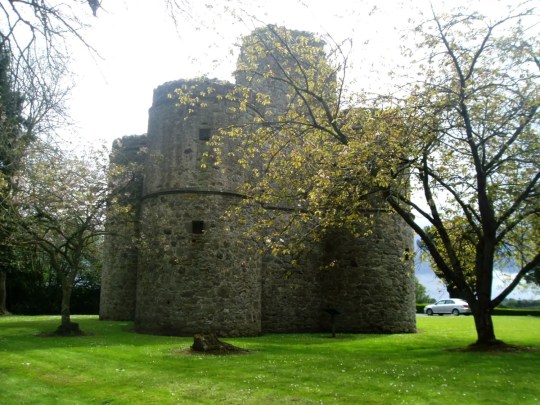
View On WordPress
#Catholic Conspiracy#Charlemont#Co. Armagh#Dungannon#Earl of Tyrone#England#Hugh MacMahon#Hugh O’Neill#Irish Uprising of 1641#King James I#Leinster#Lord Lieutenant of Ireland#Mountjoy#Oliver Cromwell#Plantation of Ulster#Portadown#Protestant#Rory O&039;More#Sir William Parsons#Ulster
10 notes
·
View notes
Note
new dude just dropped: loyalist maoist
That's not a new dude that's your average protestant or dissenting citizen of ulster in the mid to late 1780s
88 notes
·
View notes
Text
Hetalia headcanon time! Here are some potential names I think the UK bros (aside from England, who has a canon name) and Ireland could have. Please note, these are also on my X account.
1. Scotland first names:
Alistair/Alasdair (gaelic spelling): meaning "defending men," which can relate to Scotland's strength and the battles throughout his history, most notably with England. It could also relate to his desire to protect his younger brothers as an elder sibling (though he'd never admit this outright, of course).
Hamish: meaning "supplanter" and "replacement." This name could be related to Scotland's desire to gain independence, taking the reigns for his own people from Arthur and ruling over his lands, thus replacing Arthur's control in this regard.
Scotland surnames:
MacDougal/Mac Dubhghaill (gaelic): meaning "son of Dougal" and "dark stranger." This can be tied to Scotland's outward appearance. On the outside, he looks stern and almost unapproachable but is actually noted to be rather sociable.
Robertson: meaning "son of Robert" and "bright fame." This surname could be used as a reference to Robert the Bruce, a former king of Scotland known from freeing Scotland from English rule at one time.
2. Wales first names:
Medwyn: meaning "strong friend," which relates to his friendly personality and his close relationship with England (it is noted he believes that he understands Arthur best due to the time they've spent together over the years).
Arwyn: meaning "very fair" which could be used to describe the colour of his hair and how, well, at least I envision, he acts as a mediator in many arguments in the UK household.
Wales surnames:
Davies: meaning "son of David" and one of the more common surnames in Wales. This could also be used as a reference to St. David, Wales's patron saint.
Pritchard: meaning "son of Richard", a somewhat common Welsh surname in Wales.
3. N. Ireland first names:
Cian: meaning "ancient" or "enduring." It could be used to refer to his land's rich history and how much he and his people have endured over the years.
Eoghan: an Irish name which can mean "youth", which would directly relate to his age as a relatively new nation (particularly if his birth is pin pointed as taking place during the Ulster plantation).
Oliver: meaning "olive tree," which is long thought to be a symbol of peace. This could be used as a reference to Northern Ireland's longing for peace.
N.Ireland surnames:
Wilson: Taken from the name 'William' and can be used as a reference to William of Orange, a further reference to Northern Ireland's protestant history - the Orange order is named after him.
Smith: Refers to someone who "works with metal", which can be used as a reference to Northern Ireland's shipping industry (think the Titanic) and how one of Northern Ireland's exports is machinery.
4. Ireland first names:
Cathal: meaning "battle" and "rule," which can be used as a reference to Ireland's fight for independence and his turbulent history with England.
Dáithí: meaning "swiftness" or "nimbleness," which can be used as a small reference to his physicality; I envision him to partake in a lot of dancing and to be quite capable in physical combat.
Ireland surnames:
O'Callaghan: meaning "lover of churches," referring to Ireland's strong religious history and how religion is still a strong presence in modern Ireland. It can also mean "bright headed," which can be a reference to his intelligence.
McCarthy: meaning "loving," which, judging on his emotions and actions so far, I'd say Ireland has a lot of love in his heart.
#axis powers hetalia#hetalia world series#aph#hetalia#hetalia ireland#hetalia headcanons#hetalia scotland#hetalia northern ireland#hetalia wales#hetalia world stars#hetalia world twinkle
14 notes
·
View notes
Text
How Are You Going to Be Irish and a White Supremacist?
no bc how are you going to be irish and be xenophobic? how are you going to be irish and be a white supremacist?
throughout ireland's history, our island has seen celts, vikings, it was a mixmatch of different cultures from the getgo.
even before the plantations, normans invaded the island, they eventually essemilated into irish culture while keeping some of their own.
then moving onto the most successful plantation, the ulster plantation, spaniards helped with the irish's effort, and then in later times, the french helped us as well.
the famine:
the Choctaw People sent us aid, the tsar, an ottoman sultan, many countries sent aid, a Philidelphia Irish Famine Relief Committee made up of catholic protestant and jewish people was set up to give aid to the starving irish, so many countries helped us. FFS even the english helped in some strange ways. 'International fundraising activities received donations from locations as diverse as Venezuela, Australia, South Africa, Mexico, Russia and Italy.' [Wikipedia, Great Famine (Ireland)]
this might not be important considering that despite the fact these absolute jokes use republicanism and patriotism to justify their bigotry, they don't consider the people in the ni to be 'actually irish', but NICRA (northern ireland civil rights association)
NICRA aimed to stop irish catholics being discriminated against with jobs, voting, housing, and also aimed to tackle the Special Powers act which put many away in jail unfairly and without trial. NICRA WAS LITERALLY BASED OFF OF MARTIN LUTHER KING, AND THE CIVIL RIGHTS CAMPAIGN IN AMERICA.
we've all seen how palestine and ireland have supported eachother through the years. how palestine is being fucking carpet bombed right now thanks to a colonial force. do you know how much good the so called 'patriots' of this country could do if they put their energy to helping people instead of being absolute scumbags?
if you are irish and you are a white supremacist, if you're irish and you're xenophobic. you don't get to hide behind patriotism.
if you loved being irish, you would look back at history and see all of the countries that helped us, all of the countries that had no reason to, but saw themselves in our struggle, that sent aid, that supported us.
if you were a true patriot, you would learn your own language instead of scoffing at it. you would promote the protection acts for the irish language, you would help create and fundraise for cultural festivals. you would reinstate old traditions . you would protect and help nourish your culture but you dont. instead you assault and attack innocent people based on the fact they're not "irish enough".
if you were a true patriot, you would follow in the footsteps of the likes of the Irish Anti-Apartheid Movement of the 1960s, of the Irish people who donated to Native Tribes during the pandemic.
your skewed sense of pride is based on the fact our ancestors bore so much pain and suffering yet still managed to fight for freedom. that pride, that patriotism all means nothing if you are using it to uphold the colonial standards of white supremacy that helped shackle them in the first place.
okay thats all i wanna say bye bye
#sorry for the rant btw#this might be a little bad w wording so sorry abt that#irish#ireland#northern ireland#white supremism#xenophobia#rant
23 notes
·
View notes